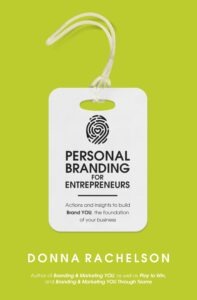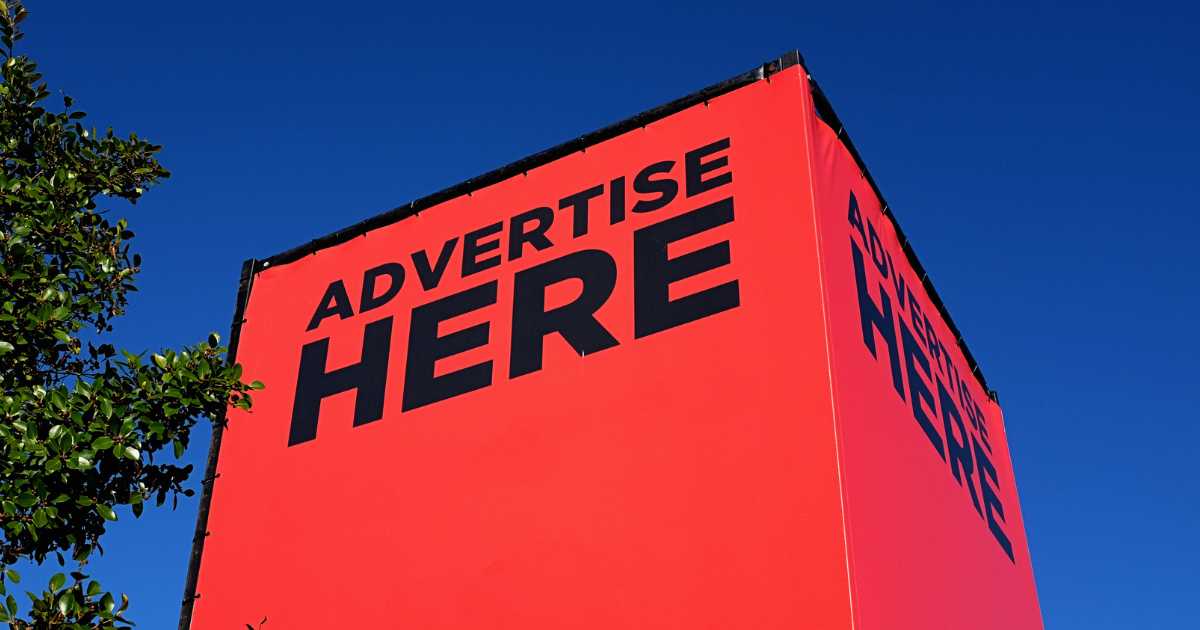
While many South African entrepreneurs understand the importance of personal branding, very few ever make the effort to cultivate it and take full advantage of what it has to offer. This is despite everything we know about the benefits of marketing yourself and your business.
“We are all branded, whether we like it or not. Effective personal branding is about being deliberate in cultivating how others perceive you,” Donna Rachelson writes in her newly released book, Personal Branding for Entrepreneurs.

In an age where you are the brand, Rachelson’s fourth book offers a guide for how real working entrepreneurs can build a personal brand and ultimately figure out, and communicate to others, what makes them truly distinctive.
Rachelson has more than 25 years of experience in investigating what makes brands successful. She is also a passionate advocate for entrepreneurs, and has extensive experience in helping startups and growth stage businesses to succeed. She is also an entrepreneur herself.
This fast and easy read is mix of Rachelson’s advice together with advice from some of the country’s most well-known entrepreneurs, the likes of Mogau Seshoene, founder of the Lazy Makoti and author of The Lazy Makoti’s Guide to the Kitchen; Gil Oved, COO of LLH Capital and former co-founder of The Creative Counsel and Des and Simon Steadman, co-owners of Ultimate Adventures, a self-drive 4×4 tour company.
This excerpt of Chapter 1: What Is a Personal Brand?
I want to have a quick look at what personal branding is not because there are many myths and misconceptions about the term.
Personal branding is not about bragging or shameless self-promotion
It’s not about making a lot of noise about how wonderful you are. It’s about identifying your strengths and what makes you distinctive from others in your field. It’s about communicating the value you deliver; raising your profile and getting other people to talk about you in a positive light. The fact is that you might be brilliant. Your business idea might be exceptional. But if nobody knows about you or your idea, you can’t turn your business into a success.
In their own words
As a medical professional, my name is the one that goes on the door, and so my personal brand is the association I create around that name. My personal brand is not for everyone, but when I have patients that connect with it, they tend to stick with me. – Dr Dory Neu-Ner
For many years of my entrepreneurial journey, I didn’t respect the importance of personal branding
Personal branding and marketing is not just for celebrities and it’s not about giving up your privacy
Personal branding works in any industry. It’s not just for celebrities and politicians – it’s for anyone who understands the importance of perceptions and of managing them effectively. Building your personal brand doesn’t mean that you need to make every thought, word or photo publicly available – it means being intentional about being visible to the people who need to know about you.
That intentionality applies to what you share too.
Whether you are looking to launch your first business venture, recovering from a failed business or starting the next company in a string of businesses, you can benefit from personal branding.
In their own words
For many years of my entrepreneurial journey, I didn’t respect the importance of personal branding. As an individual, I lead a very private life. And I used to think that it meant that I needed to keep a low profile. My theory was that if people needed to know about me, the right people would find out in the right way, which of course is absolute rubbish.
As I was building the previous business with my partner at the time, we were finding it hard to secure the right staff, to create longevity and to create real intellectual property (IP). All those things are contained in the concept of a brand. We didn’t really have a brand. Yes, we had a going concern that was doing pretty good business, but it wasn’t a brand. It’s kind of ironic, given that we were in the business of building brands for other people. We took the decision to implement a complete step change on that front, and we went from zero to one in binary terms.
We decided that we would build the company brand by building the brands of the individuals who were running the business. Everything changed from that point on. I see it as a kink in the trajectory of the business, and my life and my own career. I realised for myself that people buy into people. It was something I’d always preached about to other people, but it really hit home for me through this experience.
People – clients, suppliers and staff – will buy into an individual and what that individual stands for. This taught me that my personal life can remain private and that my personal brand is an extension of elements of my personality and an amplification of my values. Building my personal brand doesn’t have to mean baring my full private life out in the open. – Gil Oved
Personal branding can be a way for you to get your business noticed and to develop credibility
Personal branding is not optional for entrepreneurs
As an entrepreneur, you’re competing for funding, market share and attention. You cannot afford to drop off the radar. There are lots of other business owners who have similar technical experience to yours; people whose ideas are as interesting and deserving of support as yours; companies that are competing for the same finances and clientele as yours.
Personal branding can be a way for you to get your business noticed and to develop credibility and garner support more quickly.
In their own words
To me, personal branding is the practice of marketing oneself and seeking to create the best possible impression in the minds of others. It is an ongoing affair. – Keith Bothongo
Personal branding is not about pretending to be someone you’re not, or aggressively ‘selling’ yourself
Many people mistakenly believe that when you brand and market yourself you need to project something that is ‘not you’. This is the greatest misconception of successful personal branding, which actually focuses on authenticity.
Personal branding is simply about understanding what makes you unique, different and memorable and packaging these skills and characteristics in a way that lifts you above the crowd.
One of the myths that puts people off the idea of developing and marketing a personal brand is that people think it means aggressively selling themselves.
In truth, however, people who brand themselves well naturally start to ‘market’ themselves instead of ‘sell’ themselves.
The way I understand the difference is that sales is about achieving the actual purchase of a product or service (the instant when the customer or client says ‘yes, I’ll buy’). Marketing, on the other hand, is about getting people to see value – and therefore ultimately to want what you’re selling. It includes building the reputation of the brand.
Successful marketing results in easier sales. If people start to notice and then admire your personal brand, you’re one step closer to getting them to buy into your business (whether as an investor, supplier, partner or client).
Good marketing intrigues people far more than hardselling tactics. Successfully building and marketing your personal brand means people will start to see you as a specialist and a trusted source – and this is great for your business in the long run.
Building a personal brand means you become associated with specific topics or skills
In their own words
Personal branding is about the brand you create around an individual. I think Bear Grylls is a good example – his name has become associated with survival. Building a personal brand means you become associated with specific topics or skills. – Simon Steadman
Our personal brands are built on creating an environment where our guests on our tours feel like they’re part of the family. It runs through everything we do, from the home-cooked meals we make – which is the type of food we’d cook for you if you came to visit us at our house – to the fact that we spend time getting to know people and what’s important in their lives. Our customers come back to us because they know they can always expect that family-type experience. The consistency of the experience and the standards we offer is very important. – Des Steadman
The book is published by Tracey McDonald Publishers and is available at all fine South African bookstores. The ebook is available on Kindle.
Also available for purchase from Amazon and www.donnarachelson.com






